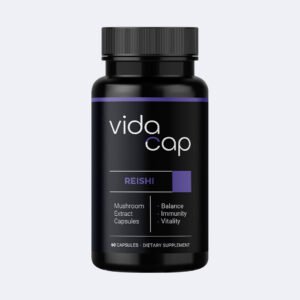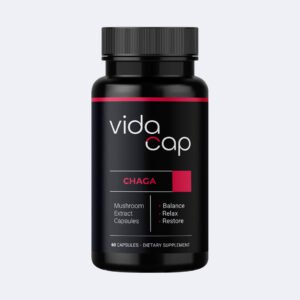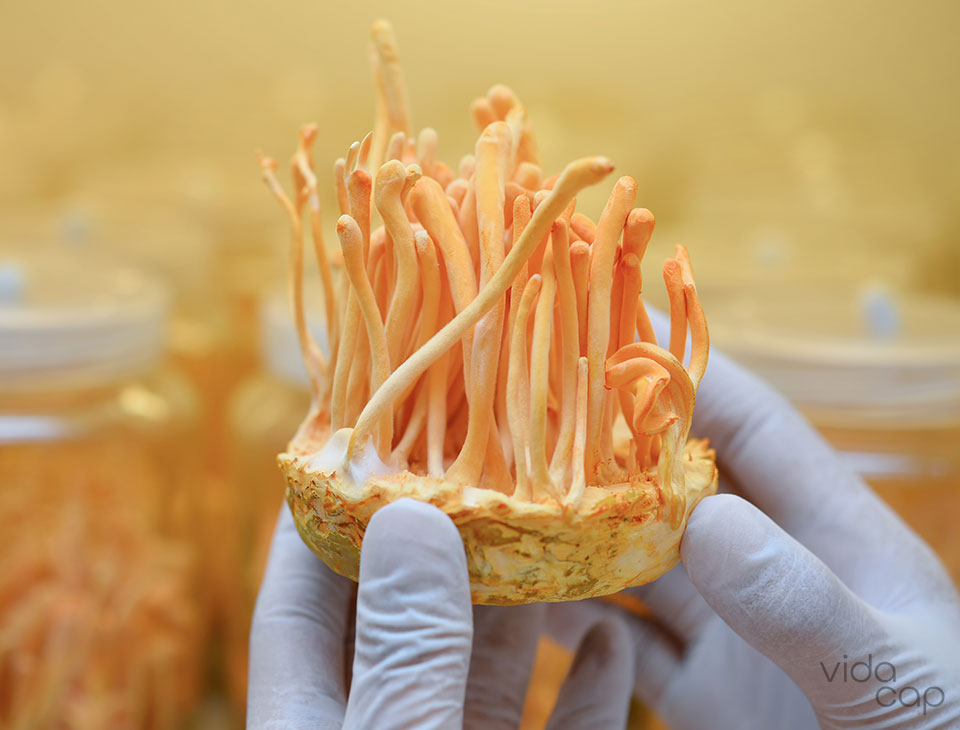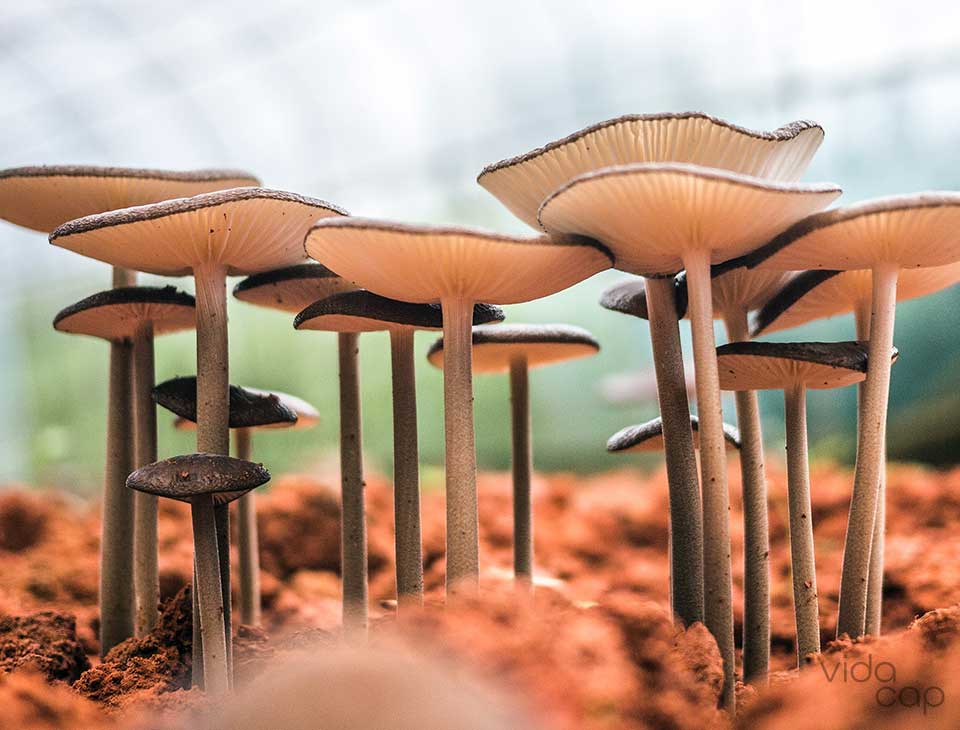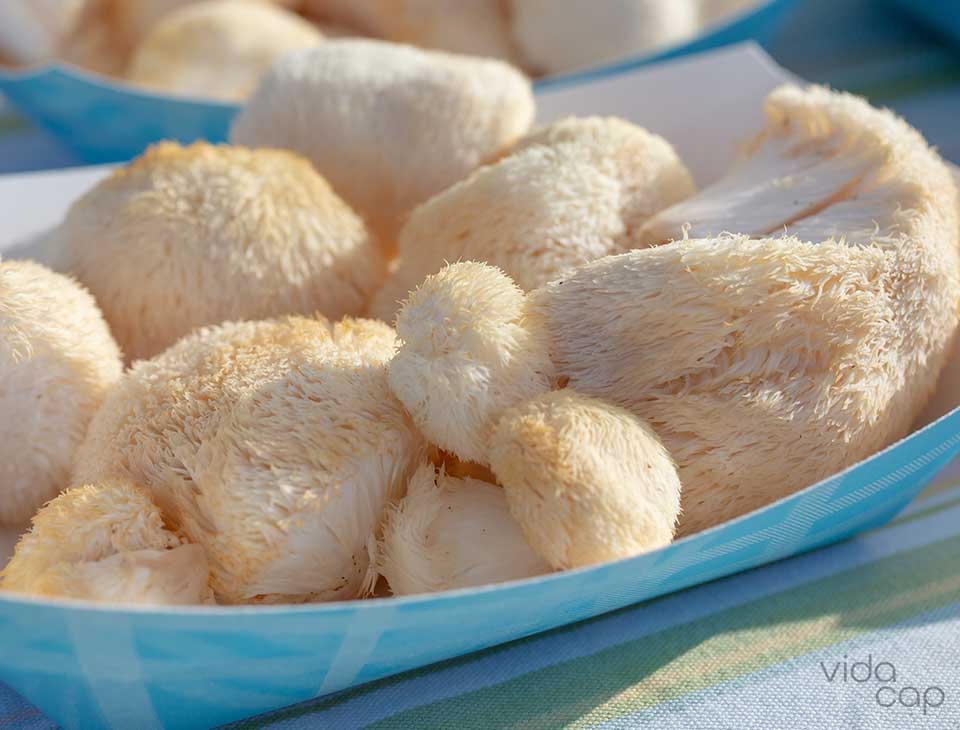
Enoki Mushrooms: Benefits and Uses
 Audrey Ferguson |
Updated on: March 12, 2024
Audrey Ferguson |
Updated on: March 12, 2024
Enoki mushrooms are popular in East Asian cuisine, and many people love the unique flavor and texture these mushrooms add to a dish. Moreover, they are highly nutritious and have a range of potential health benefits.
Read on for our guide to enoki mushrooms, their therapeutic uses, and how to prepare them. We also outline some possible issues with enoki mushrooms and how to avoid them.
What Are Enoki Mushrooms?
Enoki, or enokitake, is one of many common names for the fungal species Flammulina velutipes. It is also known as winter mushroom, golden needle, velvet foot, or velvet shank.
These names describe the mushrooms’ growth habits and appearance. In the wild, they fruit during the coldest months and have a long, velvety stalk when mature. However, cultivated enoki mushrooms look very different, as we will explain later. They grow abundantly across North America, Europe, and Asia, and their ideal habitat is woodland, particularly hardwood logs or trees.
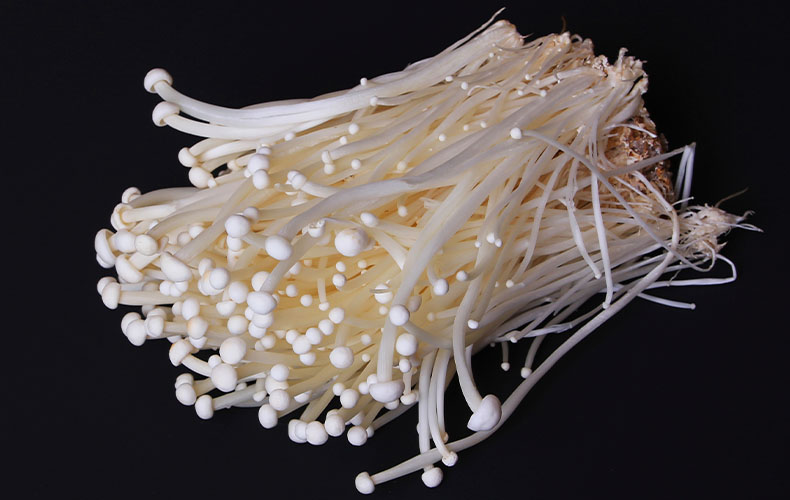
Enoki is one of the most popular and widely cultivated fungal species worldwide. The mushrooms have a unique texture and taste and are especially favored in Japanese and Chinese cuisine. They also boast an exceptional nutritional profile, being a rich source of protein and fiber while low in calories and fat.
Interestingly, in 1993, NASA sent samples of enoki into orbit onboard the space shuttle to test how they reacted to zero gravity, and scientific interest in these mushrooms does not end there.
More recently, researchers have been investigating enoki’s biological activity and potential health benefits. In the next section, we will discuss some of their most exciting findings to date.
Enoki Mushroom Benefits
According to a 2016 review of studies, enoki mushrooms could have the following benefits:
- Antimicrobial
- Antioxidant
- Anti-inflammatory
- Immunomodulatory
- Liver-protective
- Blood pressure and cholesterol reduction
However, most of the current research involves isolated cell lines or animals rather than clinical trials. Therefore, further study is necessary to confirm whether these benefits translate to humans. That said, enoki mushrooms contain numerous biologically active compounds, which are likely to have some of the hypothesized effects.
One of the best-researched areas is how enoki mushrooms influence cholesterol and fat metabolism. Here is a summary of some relevant studies:
Enoki Mushrooms and Cholesterol Reduction
A 2014 study found that giving hamsters enoki powder or extract significantly influenced their cholesterol levels.
After eight weeks, the animals receiving the highest dose had the lowest levels of total cholesterol (TC), triacylglycerol, and low-density lipoprotein cholesterol (LDL-C), which is associated with an increased risk of heart disease.
The researchers attributed these results to the mushrooms’ high levels of dietary fiber, antioxidant compounds, and a chemical called mycosterol. Experts have linked mycosterol to reductions in blood pressure, blood sugar, and cholesterol.
A 2018 study had comparable results. Researchers fed mice a high-fat diet and gave some of them a product called chitosan from enoki mushrooms. After six weeks, the mice in the chitosan groups gained less weight than their untreated counterparts. They also had lower levels of triglycerides, TC, and LDL-C, and increased high-density lipoprotein cholesterol (HDL-C), which can lower the risk of heart disease and stroke.
Enoki Mushroom Nutrition Facts
Enoki mushrooms are nutritional powerhouses. They are particularly high in protein, containing a full range of essential amino acids and some non-essential ones, too. They also provide a generous amount of dietary fiber, which can benefit several areas of health.
However, enoki mushrooms’ fiber content could cause issues for some people, as it makes them tough and somewhat difficult to digest. In China, they are colloquially known as “see you tomorrow” due to their ability to pass through the digestive system whole. Therefore, it is crucial to chew enoki well, especially for people with digestive issues such as IBS.
Individuals who are not put off by this quirk will find that these mushrooms are an excellent addition to a healthy diet, as they are rich in nutritional compounds, including ergosterol, beta-glucan, B vitamins, and numerous essential minerals.
Types of Enoki Mushroom
There are two types of enoki mushrooms; wild and cultivated. Although they are members of the same species, they are practically unrecognizable as such due to their very different appearances.
Wild Enoki
Wild enoki mushrooms grow on dead hardwood trees or logs, and they are in season from late fall to spring. They tend to grow in large, tightly packed clusters and have tan-colored caps with darker brown, velvety stems.
Although these mushrooms are edible, they look very similar to a poisonous species, Galerina autumnalis. Furthermore, the two species often grow side-by-side, increasing the risk of misidentification.
One way to distinguish enoki from Galerina autumnalis is that enoki has no ring on its stem, whereas Galerina autumnalis does. However, the most reliable method of differentiating these mushrooms is taking a spore print. Enoki spores are white, while Galerina autumnalis spores are brown.
You should only harvest wild enoki (or any mushroom) if you are 100% confident about its identification. It is much safer to purchase cultivated enoki, which are widely available in Asian grocery stores.
Cultivated Enoki
Cultivated enoki have a noticeably different appearance than their wild counterparts. They have long, spindly, white stems and undeveloped white caps. This is due to the mushrooms being cultivated in the dark, causing them to grow long and thin as they stretch out, searching for light.
How to Eat Enoki Mushrooms
As a staple of Asian cuisine, one of the most popular methods of cooking enoki mushrooms is stir-frying. You can also add them to soups or sauces, or grill them wrapped in sheets of tofu or bacon.
Can You Eat Enoki Mushrooms Raw?
It is important not to overcook enoki as they can become unpleasantly chewy. However, you should also not eat them raw, as the fresh mushrooms contain a chemical called flammutoxin, which could potentially cause some adverse effects.
Flammutoxin is generally considered safe for oral consumption. However, eating large amounts of enoki for several consecutive days may be harmful. The good news is that heating the mushrooms eliminates the chemical, meaning well-cooked enoki should not be harmful.
What Do Enoki Mushrooms Taste Like?
Enoki mushrooms have a relatively mild flavor in comparison to some other species. Therefore, they pair well with pungent ingredients like soy sauce, garlic, and chili. However, they have a satisfyingly chewy texture, making them a popular addition to many dishes.
Here are a few tips for getting the best texture and flavor out of your mushrooms:
- Before cooking with enoki, cut off the bottoms and separate the mushrooms into small clumps.
- Remove any dirt by wiping the mushrooms with a damp cloth or rinsing them quickly under running water.
- Simmer enoki mushrooms in mirin or soy sauce to create a side dish for pasta, soup, or rice.
- Alternatively, try adding them to savory pancakes or hot pot.
- Enoki mushrooms also work well in warm dishes such as miso ramen or soba noodle bowls.
- Sauté the mushrooms with a little sesame oil and salt for a minute to soften them before adding them to your favorite recipe.
How to Store Enoki Mushrooms
Enoki are typically sold in plastic packaging, which isn’t ideal for mushrooms since they expel a lot of moisture and can spoil quickly.
Therefore, it is best to unwrap your enoki after purchase and use them as soon as possible. If you want to store the mushrooms for a few days, keep them refrigerated in a loosely closed paper bag. Don’t store them for more than 5-7 days.
Are Enoki Mushrooms Healthy?
Enoki mushrooms have an array of potential health benefits. As long as you’re careful of the source and cook them well, you should find that adding enoki to your regular diet is helpful.
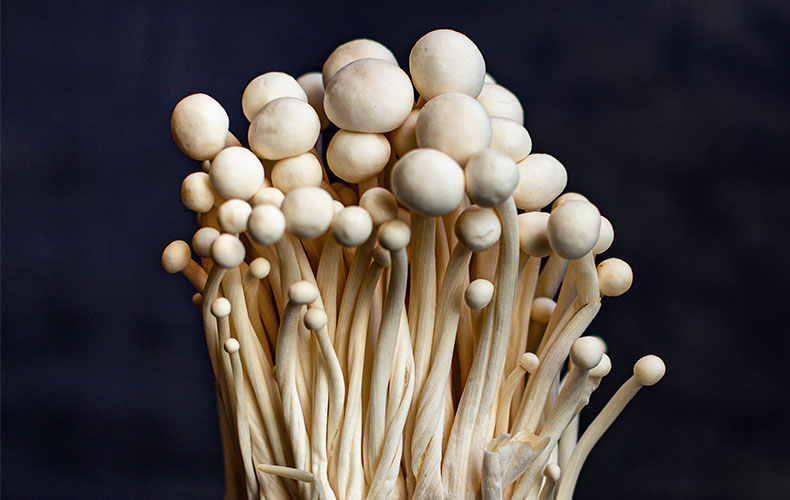
However, we advise caution when purchasing enoki mushrooms as there are occasionally problems with contamination. For instance, there were recalls of enoki in several Canadian provinces in October 2021 due to potential contamination with Listeria monocytogenes. This pathogenic bacterium can cause a variety of illnesses known collectively as listeriosis.
In March 2020, four people died, and over 30 fell seriously ill due to a listeria outbreak in 17 states. The CDC traced the issue to a recalled batch of enoki. The symptoms of listeria can include:
- Balance loss
- Confusion
- Muscle aches
- Stiff neck
- Convulsions
- Miscarriage
Therefore, when buying enoki, you should stick with brands known for having outstanding safety and hygiene records.
If the above information concerns you, there are plenty of other tasty and nutritious edible mushrooms you could try. You can also buy a variety of mushroom supplements, such as those sold here at VidaCap, which are a convenient way to increase your mushroom intake every day.
Final Thoughts on Enoki Mushrooms
Enoki, or enokitake, are popular edible mushrooms, especially in Asian cuisine. They have a unique taste and texture and an excellent nutritional profile, too.
They also contain a range of biologically active compounds, which could provide additional benefits. However, more studies are necessary to confirm precisely how enoki mushrooms impact human health.
Finally, although enoki mushrooms are generally safe to consume, they have been connected to listeria outbreaks. Therefore, make sure you always purchase them from a reputable supplier and cook them well before consumption.
-
new
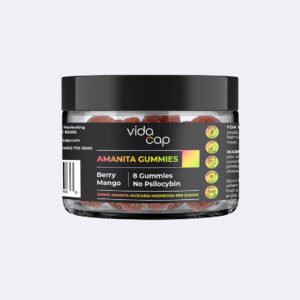 Amanita Muscaria Mushroom GummiesCalm | Mindfulness | Balance$38 Shop now
Amanita Muscaria Mushroom GummiesCalm | Mindfulness | Balance$38 Shop now- Experience a calming and balancing buzz effect.
- 8 Delicious Berry-Mango and Citrus gummies
- 500mg amanita extract per gummy for best results
- Proudly vegan and gluten-free
- Manufactured in the USA with high-quality standards

Audrey has worked as a registered dietitian for 6 years. She graduated from the University of Florida in 2013 with a Bachelor of Science degree. In 2014 she began an internship with the Veterans Affairs Healthcare System, and was hired as an Outpatient Dietitian following graduation. She started her career counseling a variety of patients with different health concerns and disease states. After a few years into practice, she found her passion was working in cancer care, and has spent the last 4 years specializing in oncology nutrition.
In her practice, Audrey has spent a significant amount of time reviewing literature on herbal and dietary supplements in the cancer care setting. Through her work at Vidacap, she hopes to continue to expand her knowledge and understanding of the benefits of supplements in conjunction with promoting a healthy, balanced diet and management of overall health and well being.

